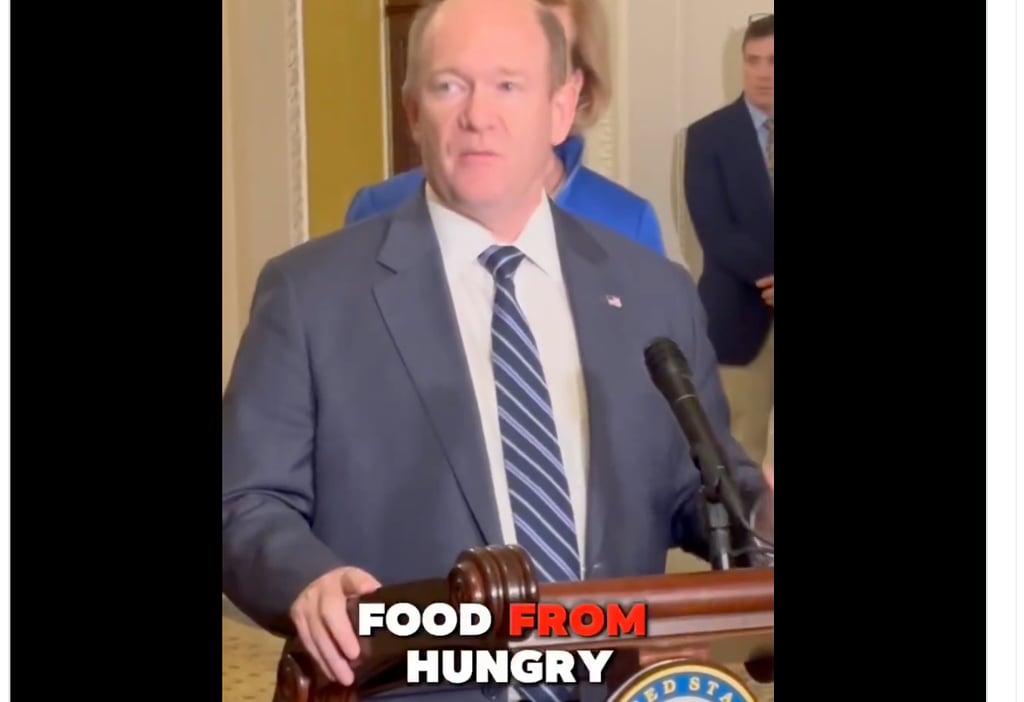The Battle Over Trump's Reconciliation Bill: A Clash of Priorities and Policies
5/23/20253 min read


The Battle Over Trump's Reconciliation Bill: A Clash of Priorities and Policies
In the ever-turbulent world of American politics, the latest skirmish revolves around President Trump's proposed reconciliation bill, a legislative maneuver aimed at reshaping the nation's fiscal landscape. At the heart of this debate is a fundamental question: should tax benefits primarily serve the wealthy, or should they prioritize the needs of vulnerable populations like children and seniors? Senator Chris Coons, a Democrat from Delaware, has taken a firm stand against the bill, arguing that it unfairly tilts the scales in favor of the rich. But is this a fair assessment, or does the bill offer more than meets the eye?
The Core of the Controversy
Coons' criticism centers on the bill's alleged prioritization of tax cuts for the wealthy over essential services for the less fortunate. He passionately argues that no faith he knows would endorse taking away food or healthcare from children and seniors to benefit the wealthiest in society. This stance taps into a deep-seated concern about income inequality and the moral implications of fiscal policy.
However, the bill's details paint a more nuanced picture. It includes a $4,000 deduction for seniors aged 65 and older, available to those with modified adjusted gross incomes below $75,000 for single filers or $150,000 for joint filers. This deduction, while not a direct elimination of taxes on Social Security benefits as initially promised, still offers significant relief. Additionally, the bill proposes an increase in the child tax credit to $2,500, aiming to support families with children. These measures suggest an attempt to balance tax relief with social support, albeit within the constraints of the Byrd Rule, which prohibits changes to Social Security in reconciliation bills.
The Byrd Rule and Legislative Constraints
The Byrd Rule, a critical component of the reconciliation process, limits what can be included in such bills. It disallows policy changes that don't affect spending or revenue and prohibits increases in the federal deficit beyond a ten-year period. This rule has historically shaped legislative battles, as seen in previous administrations where extraneous amendments were struck down. For Trump's bill, this means that sweeping changes to Social Security or other non-budgetary items are off the table, forcing lawmakers to navigate a narrow path.
Partisan Divide and Economic Implications
The debate over Trump's reconciliation bill is emblematic of the broader partisan divide on fiscal policy. Democrats, like Coons, often advocate for progressive taxation and increased social spending, viewing tax cuts for the wealthy as exacerbating inequality. Republicans, on the other hand, argue that such cuts stimulate economic growth, benefiting all layers of society indirectly. Recent economic analyses suggest that similar tax proposals could reduce federal revenue by trillions over a decade, a point of contention that fuels the fire of this debate.
Engaging the Reader: A Closer Look
Let's break this down further. The $4,000 deduction for seniors, while not as expansive as eliminating taxes on Social Security benefits, still provides tangible relief. For someone in the 22% tax bracket, this could mean a reduction in taxable income by about $880 annually. Is this enough? Or does it fall short of the broader promise made during the campaign trail?
The child tax credit increase to $2,500 is another point of interest. Families with children could see additional financial breathing room, but how does this compare to the needs of those same families for healthcare and education? And what about the wealthy? The bill's structure aims to phase out benefits for higher-income individuals, but critics argue it doesn't go far enough.
Thought-Provoking Questions
As we navigate this complex landscape, several questions arise:
Does the $4,000 deduction for seniors adequately address the needs of retirees, or is it a watered-down version of the original promise?
How do we balance the desire for tax relief with the imperative to protect social services for the most vulnerable?
Is the partisan divide on fiscal policy irreconcilable, or can there be a middle ground that satisfies both economic growth and social equity?
What role should faith and morality play in shaping fiscal policy, and how do we ensure that legislative decisions reflect these values?
In conclusion, the battle over Trump's reconciliation bill is more than a political spat; it's a reflection of deeper societal values and priorities. As citizens, we must engage with these issues, question the narratives, and demand transparency and fairness in our legislative processes. The future of our nation's fiscal health—and the well-being of its most vulnerable—depends on it.
hello@boncopia.com
+13286036419
© 2025. All rights reserved.